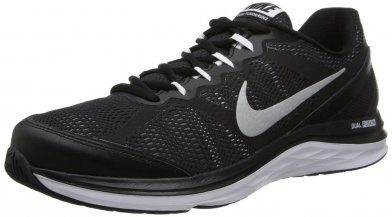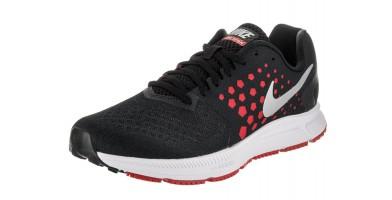Nike Air Zoom Structure 19
Nike Air Zoom Structure 19 Review Facts
Nike made a name for themselves by consistently making some of the best performing and most stylish looking athletic apparel on the market. Each item bearing the signature Nike swoosh demonstrates the core values of the brand, especially its footwear. As the premier athletic brand, they’ve made many attempts to redefine their products in order to stay ahead of the pack. While some of these projects weren’t very successful, others touch on something new and unique that quickly becomes the next trend. The Nike Air Zoom Structure 19 doesn’t reinvent the running shoe but it does provide a level of support and responsiveness on par with its style and speed.
Editor's Pros & Cons
Pros
- Flymesh upper provides lightweight breathability
- Triple foam midsole provides high comfort
- Waffle outsole promotes solid grip and traction
- A variety of color options and styles
Cons
- Disappointing heel support
- Limited flexibility
- Heavier than normal weight
- The lack of flexibility and the greater weight causes a sluggish feeling.
Outsole
Outsole
The entirety of this shoe’s outsole is made from rubber; soft blown rubber material was used for the forefoot and carbon rubber was implemented in the midfoot and rear. The forefoot has a waffle design, providing an excellent grip on most standard running environments. This particular design also helps to distribute pressure from foot strikes throughout the entire underfoot. This can prevent undue stress from affecting key areas, such as the toes or heel, which could otherwise lead to injury. A decent amount of flexibility is offered with the small grooves in the waffled outsole, although this is hampered by other parts of the Air Zoom Structure 19. Finally, a teardrop shape used for the shape of the midfoot and heel allow for extra cushioning in these key areas. As a result, high comfort and traction are guaranteed.
Midsole
Midsole
Dual foam density is the key design feature of the Nike Air Zoom Structure 19’s midsole. This highly dense cushioning material is made from a combination of phylon and cushion, which work to provide a high level of comfort. The secret to the effectiveness of this particular Nike midsole is their use of dual-density material in conjunction with the forefoot’s use of Nike Zoom Air technology. The reasoning for this particular design was to provide a softer, thinner amount of material near the toes in order for runners to feel the ground they are running on more intimately, while still providing enough cushion for the rest of the foot to run comfortably. This results in some stiffness around the midfoot and heel regions, providing higher stability at the cost of flexibility. Despite the lack of bending, the midsoles of these shoes are said to have excellent responsiveness according to seasoned runners who have tried them.
Upper
Upper
Nike’s Flymesh upper was used predominantly in designing the upper portion of the Nike Air Zoom Structure 19. One solid, seamless piece was used for this portion of the shoe, enabling a comfortable fit around the entirety of a runner’s foot without risk of chafing. The material provides a snug fit while providing enough ventilation to allow runners’ feet to breathe. Further comfort and security are provided by the FlyWire lacing system, another Nike staple that allows for variable levels of lace tightness. Nike may have made some mistakes in past running shoes, but one thing that they have consistently knocked out of the park is their uppers.
Weight
Weight
At just over 10 ounces, these shoes weigh about as much as any other running shoe. Since the upper portion is made from such lightweight material, the majority of this weight comes from the bottom half of the Air Zoom Structure 19. Because of this uneven distribution, some runners may find that these shoes feel a bit heavier than they really are. In fact, some customers have made this exact statement when leaving reviews. This is an unfortunate downside to making a shoe with both dense cushioning in the midsole and a lightweight, breathable upper; it’s not ideal, but the benefits far outweigh the negatives. (no pun intended)
Breathability
Breathability
As previously mentioned, the Flymesh material used for the Air Zoom Structure 19 provides strong breathability, same as it does in the numerous other Nike products in which it was used. What is surprising is that this material manages to provide such an excellent amount of airflow while maintaining a tight and secure fit on runners’ feet. This is due to the highly complex knitted fabric that makes up FlyMesh, and it led to a whole host of other running shoe manufacturers essentially copying this design tactic. While it may sound like the tightness of this material results in discomfort, care has been made to provide room for the forefoot with an expanded toe box; this also carries the benefit of more ventilation to this key area of the foot.
Comfort
Comfort
Comfortable cushioning is very important for any running shoe, but it is especially important in a heavier running shoe. Without some level of comfort, there’s simply no point to the extra weight. Fortunately, the Air Zoom Structure 19 provides more than enough cushion to make up for its slightly cumbersome weight. For starters, the aforementioned Flymesh material provides a snug, sock-like fit around the upper part of the foot. This particularly comfortable portion of the shoe has inspired some runners to forego wearing socks altogether when running in these shoes, although this isn’t recommended by the manufacturer. In addition to this, the Flywire system on the upper allows for runners to tweak the comfort of these shoes to a finer degree in order to fit their personal preference. However, the most comfortable portion of the Air Zoom Structure 19 is the midsole that is comprised of dual foam material. An outsole with waffle treading and a wide base round out the rest of this Nike product as a comfortable, responsive, and stable runner.
Style
Style
As is custom, Nike provides a wide variety of stylish color choices with the Air Zoom Structure 19. 8 different styles can be found through Nike’s website, with Amazon offering even more. The FlyMesh material, in particular, looks exceptionally smooth and stylish with a variety of interesting color gradients, ranging in warmth and intensity. Additionally, the flywire lacing manages to coordinate brilliantly with the rest of the shoe into a coherent and aesthetically pleasing design.
Durability
Durability
Just like every other Air Zoom shoe from Nike, runners can expect an average lifespan of 250-300 miles from these. This demonstrates terrific durability but a few things need to be considered. First, this is an estimate, meaning that you are not guaranteed that exact amount of mileage. Second, this estimate is dependant on the Air Zoom Structure 19 being used on appropriate running shoes surfaces. That said, these shoes are designed to function well as a daily runner, whether it’s casual jogging or sprinting and speed work. One particularly resilient portion of these shoes is the midsole; thanks to its extremely dense dual-layer cushion, it may even outlast the outsole!
Protection
Protection
At first glance, the woven fabric upper may not seem like it would provide very much protection for a runner’s foot. However, that simply isn’t true; the FlyMesh material is well made and won’t fray or tear during your runs. It may not offer the same level of defense that you can find in something with more padding, such as on a sturdy pair of trail shoes, but it does offer enough to accommodate the demands of a traditional running shoe. The areas where foot protection matters most have much more resilient materials used for their construction, such as the dual layer midsole and the blown rubber outsole.
Responsiveness
Responsiveness
While many design features required to make a responsive running shoe are present in the Nike Air Zoom Structure 19, the disproportionate weight distribution causes them to feel less quick than you may expect. The lightweight upper and waffle-style outsole treading help to provide a modicum of responsiveness, but the lack of flexibility and extra weight that comes with the Structure 19’s midsole causes it to feel a bit sluggish. That said, support and stability are guaranteed, and they should still be fast enough to handle most casual forms of training.
Support
Support
Although this shoe is marketed as offering an amount of stable support, some customers complain that the Air Zoom Structure 19 has lackluster heel support and an uncomfortable amount of medial foot pressure. These scenarios seem to be uncommon, but runners who have particularly high arches and those prone to heel striking may experience these issues. Aside from this, the forefoot, in particular, demonstrates an excellent level of support. Stable arch support is also present that will appeal to those prone to plantar fasciitis, and a decent heel drop does allow for some heel striking compensation. However, the most important aspect of this Nike shoe in terms of support is the dual-layer midsole and its excellent stability. Ultimately, the closest approximation customers have made when describing how these shoes feel is like a more supportive Nike Pegasus model.
Terrain
Terrain
The strong grip provided by the Air Zoom Structure 19’s outsole make them ideal for running on varied surfaces, such as tracks, grassy fields, dirt, sidewalks, and roads. Furthermore, some runners have said that they found these shoes to be highly resistant to inclement weather and excessive water, meaning rainy running sessions are no problem. It’s still not ideal to wear these shoes during a heavy rainstorm, and taking them onto more serious off-road terrain would be a mistake, but for the most part, these shoes can handle all forms of terrain an individual could want to run on.
Price
Price
The original suggested retail price was on the higher end of the spectrum regarding running shoes, even if it’s still the average cost of a high-end runner. However, deep discounts can be found online through retailers such as Amazon due to the fact that newer models have been released. Nike has always been known for offering premium shoes at premium prices, with the brand being the primary appeal. However, these shoes are now very competitively priced and an excellent deal.
Traction
Traction
In addition to durability, the most pressing need that was fulfilled through the design of the Structure 19’s outsole is traction. To accomplish this, a waffle-style tread pattern was used for the majority of the sole, offering enough grip and flexibility to maintain a solid running stride on terrain runners are most inclined to run on. Additionally, softer blown rubber was used near the forefoot in order to allow runners to grip the ground tighter with their toes. Some other aspects of this shoe’s design provide further traction, such as the tight-fitting upper with its FlyMesh and FlyWire, but the biggest contributor to this design aspect is the outsole by far.
Flexibility
Flexibility
When choosing between a shoe that is more stable or more flexible, Nike chose the former. This may come as a surprise to people who see the majority woven fabric construction of the Air Zoom Structure 19 and assume that it would bend like a reed. However, the amount of highly dense material needed to design and manufacture this shoe’s Dynamic Support midsole result in a level of stiffness that prevents much flexibility. Some amenities are made for this aspect of the shoe in the upper and near the front of the outsole, but for the most part, runners should expect these shoes to feel rigid.
Stability
Stability
Runners who suffer from plantar fasciitis or who are prone to overpronation will vouch for the stability of these shoes after wearing them for a few weeks. They are constructed with firmness in mind, offering the majority of its stability through the midsole. Unfortunately, this means that runners who prefer more flexible shoes will be disappointed.
Drop
Drop
As previously mentioned, these shoes feature a heel drop of around 9 mm. This is commonly seen in running shoes with a similar design and is a staple of all Nike Air Zoom products. While this ordinarily favors heel striking, customers have remarked that they still felt discomfort in their heels.
Key Features
Key Features
- FlyMesh woven fabric upper
- FlyWire lacing system
- Waffle treading pattern on the outsole’s forefoot
- Combination of blown rubber and carbon rubber on the outsole
- Triple foam density Dynamic Support midsole
Bottom Line
Bottom Line
Runners with pronation issues or plantar fasciitis will appreciate this shoe. Excellent comfort and support are provided, albeit at the cost of a heavier weight and slightly uncomfortable rigidity. All in all, the Nike Air Zoom Structure 19 is a comfortable shoe with a great design, sold at an excellent price.
×


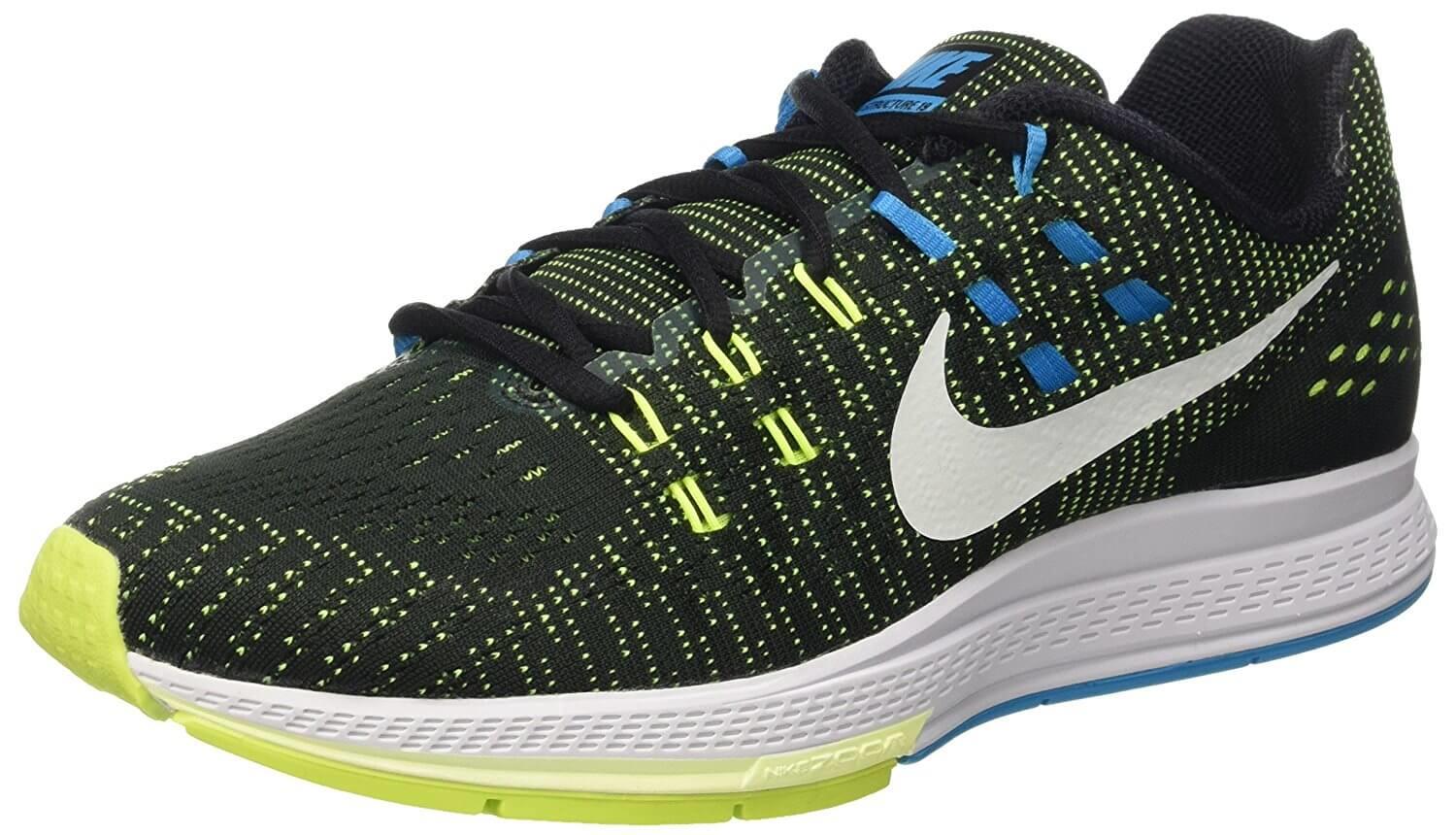
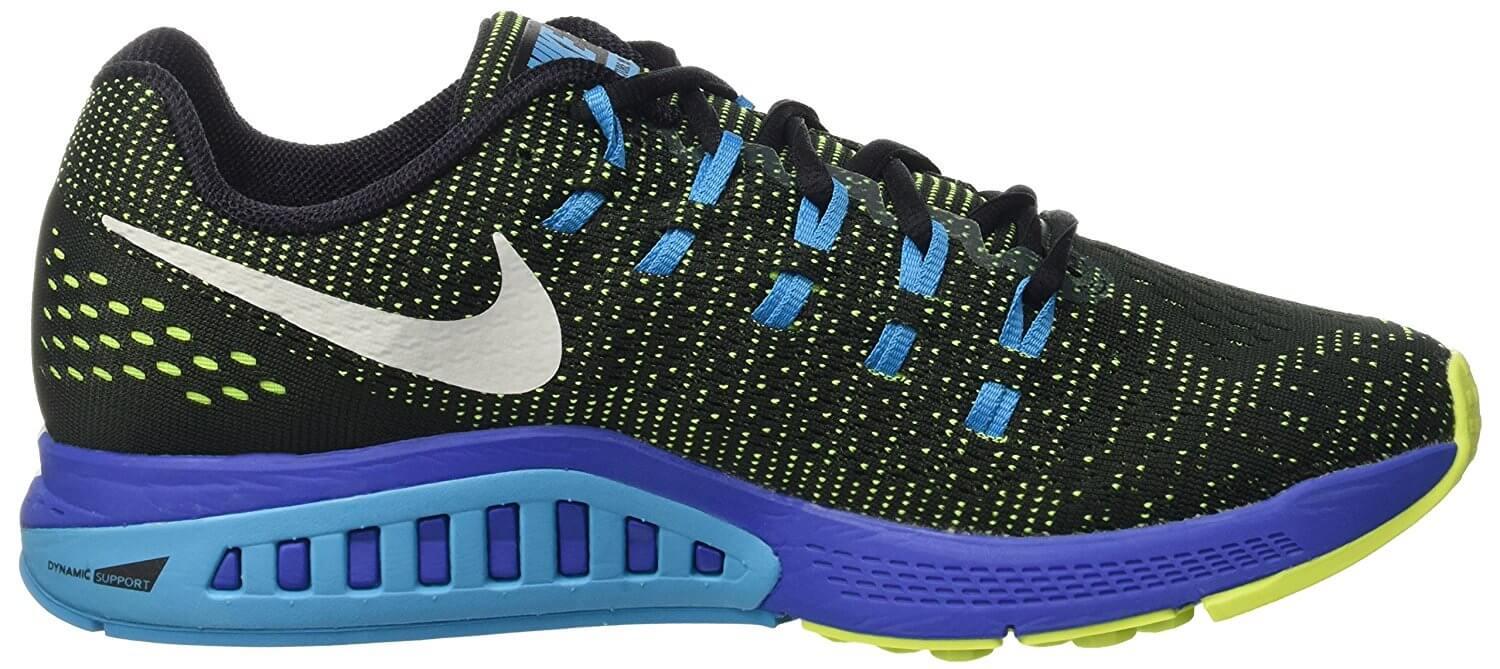
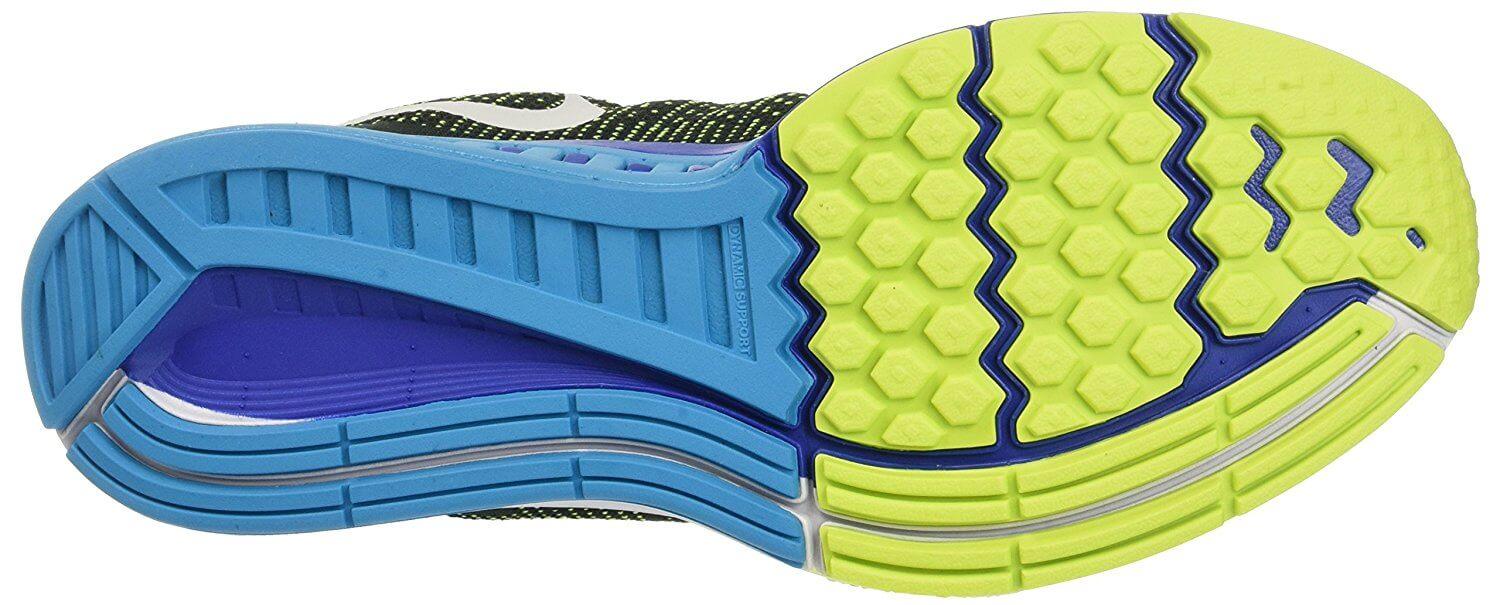
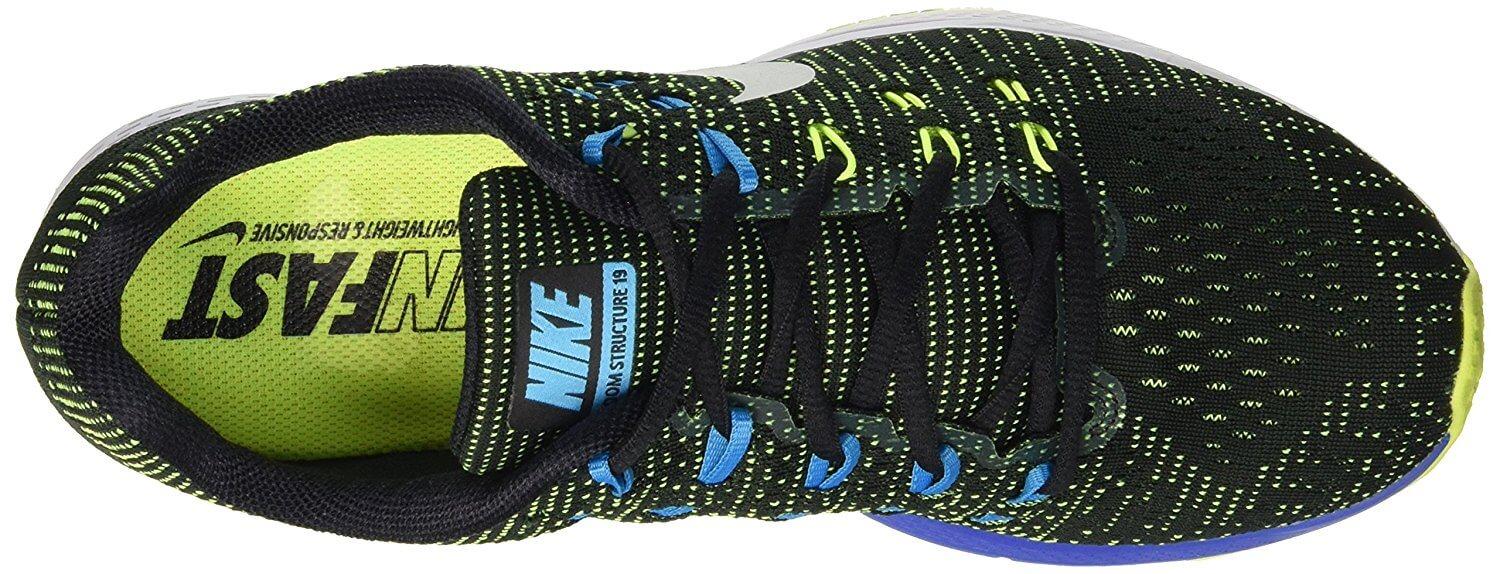
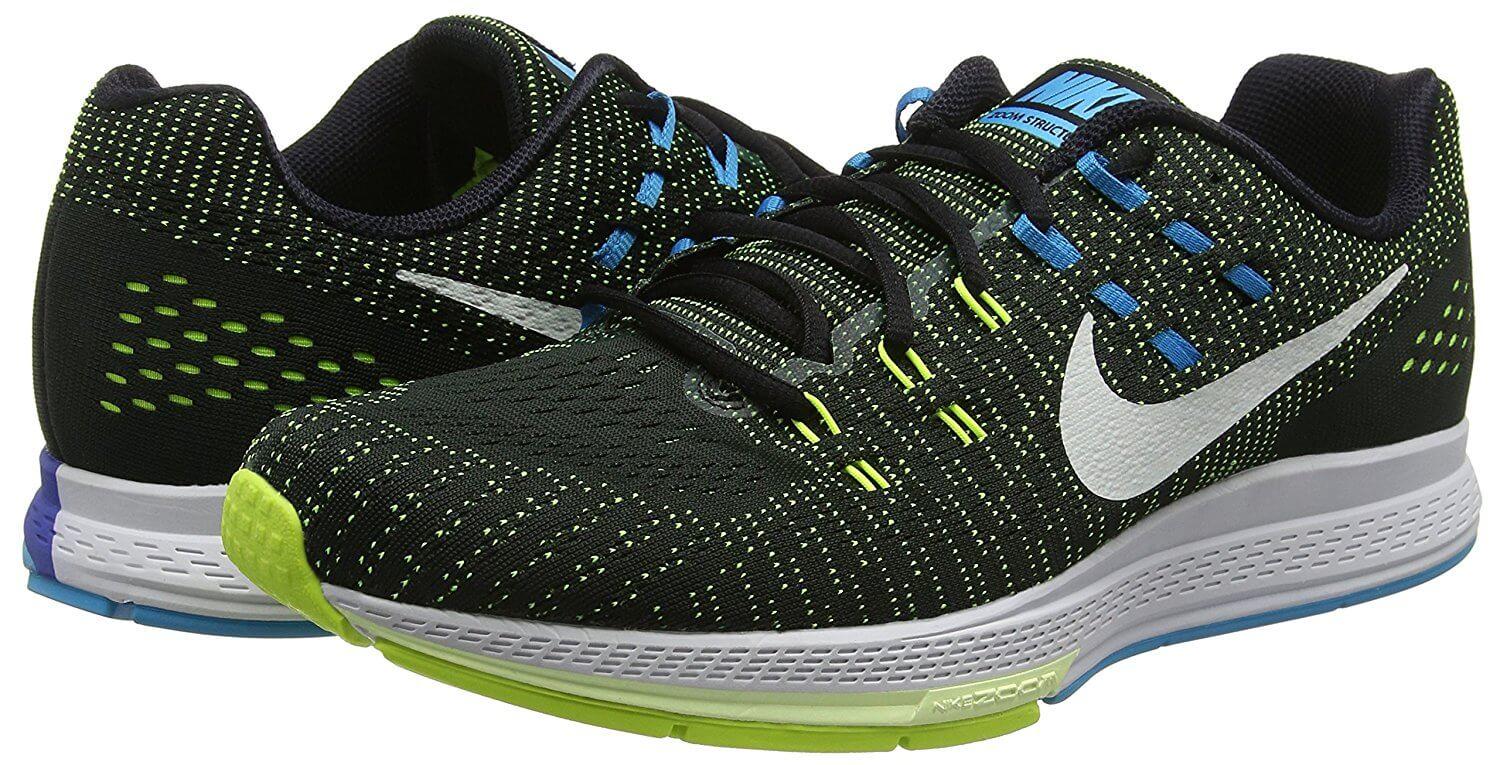








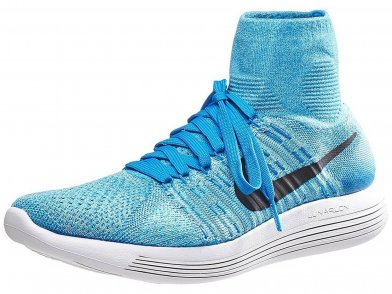
 19.5k
19.5k